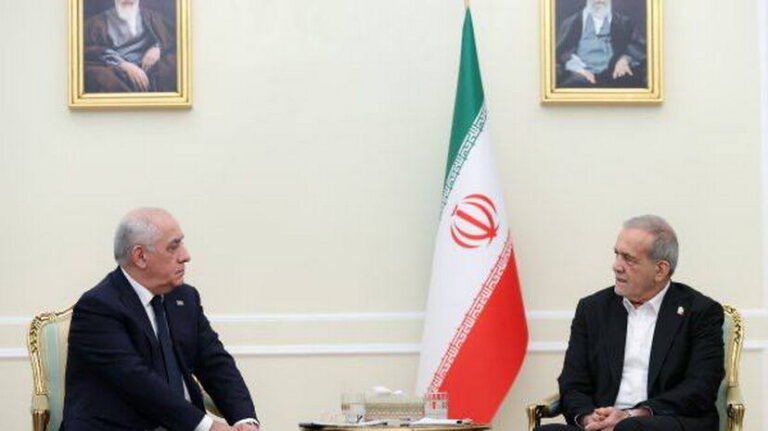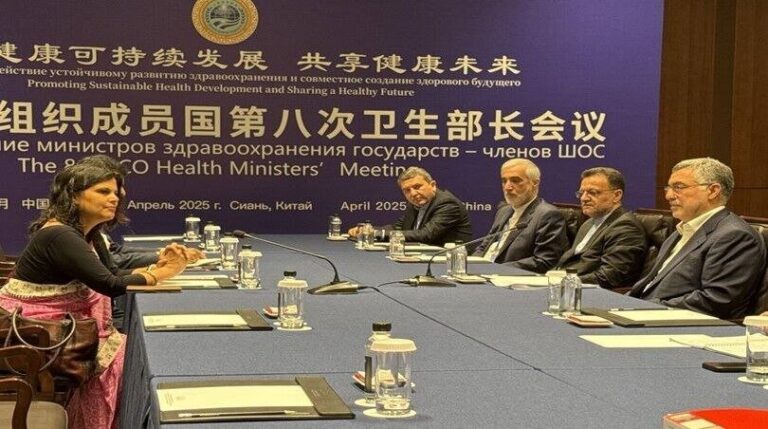Exciting Preparatory Meeting Set for International Congress on AI Innovation!
On May 11, 2023, the fourth preparatory meeting for the second International Congress on Artificial Intelligence in Medical Science will take place at the Smart University of Medical Sciences in Tehran. This event aims to highlight the transformative role of artificial intelligence (AI) in the medical field, particularly in enhancing medical image processing and diagnostics.
The upcoming congress is set to run from May 14 to 16 and will focus on a variety of cutting-edge topics, including:
- Advancements in AI for medical image processing
- Neural signal analysis and computational modeling of optic nerves
- Applications of deep learning and computer vision in visual data analysis
- The role of AI in diagnosing eye diseases like diabetic retinopathy and glaucoma
This international event serves as a vital platform for researchers and experts to share their insights, foster collaboration, and initiate joint research projects within the medical AI sector. The congress aims to:
- Facilitate interaction among researchers and AI enthusiasts
- Discuss the latest achievements and challenges in medical AI
- Explore emerging trends in AI applications
Moreover, the congress will provide a unique opportunity to identify the key challenges and weaknesses that hinder the development of AI in medical sciences. It will delve into new opportunities in:
- Diagnosis and treatment of diseases
- Development of novel drugs
- Improvements in healthcare systems
Thematic areas of focus at the congress will include:
- Personalized medicine
- Biomedical data processing
- AI in pharmacy
- AI in digital health
- Generative AI in healthcare
- Health policy, law, and management related to AI
Earlier, on February 16, Smart University of Medical Sciences hosted a preparatory event titled “AI Innovation in Telehealth.” This event featured national and international speakers who addressed:
- The latest AI tools in telehealth
- Utilization of AI to enhance the patient experience
- Future trends in AI and telehealth
This initiative aims to foster collaboration among healthcare professionals to further advance the role of AI in telehealth platforms.
Additionally, in January, a significant memorandum of understanding was signed between the Vice Presidency for Science and Technology and Tehran University of Medical Sciences. This agreement focuses on:
- Utilizing AI for medical treatment purposes
- Promoting targeted support for the health knowledge-based ecosystem
- Focusing on omics and genomics studies
- Advancing person-centered medicine with AI tools
- Innovating in the commercialization of healthcare products and services
Statistics indicate that the implementation of AI in healthcare can lead to substantial cost savings, with advanced countries experiencing reductions of up to 40 percent. In specific cases, such as breast or lung cancers, AI has the potential to lower healthcare costs by as much as 80 percent. Mostafa Qaemi, secretary of the Biology Development Headquarters, emphasized the need for a knowledge-based economy to leverage AI for cost-saving measures.
Moreover, Hassan Bakhtiari, president of Smart University of Medical Sciences, mentioned in December 2024 that the university has developed a smart healthcare document, currently in the final stages of approval. Once finalized, this document will represent a significant step toward digital transformation within Iran’s healthcare system.
Bakhtiari highlighted that the SMUMS research center is well-positioned for conducting applied research and attracting medical researchers. The center aims to facilitate the development of treatment methodologies and reduce associated costs.
He also pointed out that many regional countries are leading the way in artificial intelligence, stating, “Iran needs to strengthen its position in the artificial intelligence sector in the region.” He further noted that AI plays a critical role in the diagnosis, prevention, and treatment of diseases, significantly enhancing the quality of medical services.
Furthermore, Bakhtiari asserted that AI technology could help elevate medical services in disadvantaged and rural areas, contributing to health equity. He emphasized that telemedicine is a key area where AI can facilitate access to advanced medical services in remote regions.
According to a report from the Web of Science, Iran holds a prominent position among Islamic countries in the field of AI. With 17,458 publications, Iran ranks first in neural network technology and multi-agent systems. Globally, it stands at:
- 6th in neural network technology
- 12th in multi-agent systems
Additionally, Iran ranks second among Islamic nations in the domains of artificial intelligence, machine learning, and robotics. The data includes a comprehensive twenty-year span from 2004 to 2023, highlighting Iran’s growing influence in these advanced technological fields.
The report also reveals that Iran ranks second among Islamic nations in three-dimensional printing, based on data collected from 2014 to 2023.






